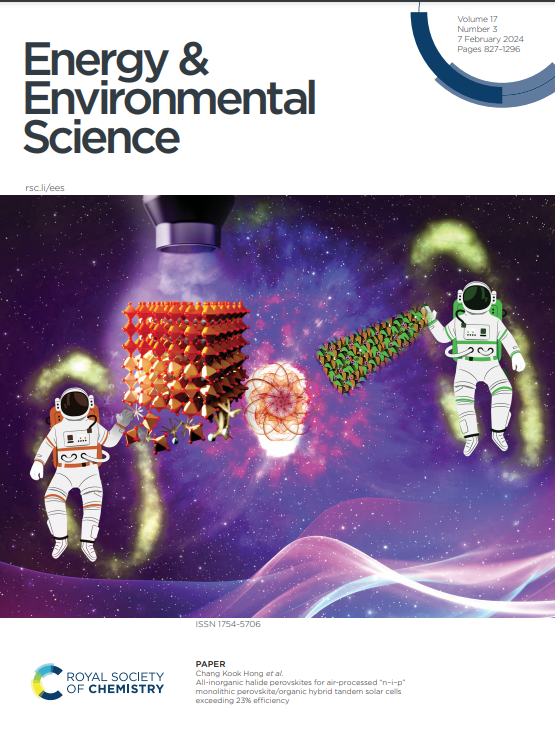Precision N-Species Engineering in Pt–N4 via Ring-Reconstruction towards Efficient Alkaline Water Electrolysis
IF 32.4
1区 材料科学
Q1 CHEMISTRY, MULTIDISCIPLINARY
引用次数: 0
Abstract
Pyridinic-N (N[6]) and pyrrolic-N (N[5]) are vital for the performance of metal-nitrogen-carbon (M–N–C) catalysts, yet precise control over them remains elusive. Here we theoretically explore the impact of N[5]/N[6] atomic ratios on stabilities and activities of Pt–N4–C, a leading hydrogen evolution catalyst. Guided by the insight, we successfully synthesize the Pt–N4–C with an optimized 1:1 N[5]/N[6] ratio via hydrogen-assisted pyrolysis of ZIF-8@ZIF-67, followed by Pt coordination. In-situ generated Co nanoparticles convert partial N[6] to N[5], inducing a ring-reconstruction and fine-tuning of N ratios. The internal N-engineering of Pt1 coordinated with N[5]/[6]C and external OH adsorption on Con significantly reduce the alkaline water splitting energy barrier, achieving an exceptionally low voltage (1.82 V) and excellent stability (400 h @ 1 A cm-2) in membrane electrode assemblies. This work offers crucial insights into optimizing N[5]/N[6] ratios to enhance the performance of M–N–C catalyst.基于环重构的高效碱水电解Pt-N4精密n态工程
吡啶-N (N[6])和吡啶-N (N[5])对金属-氮-碳(M-N-C)催化剂的性能至关重要,但对它们的精确控制仍然难以捉摸。本文从理论上探讨了N - [5]/N -[6]原子比对Pt-N4-C(一种领先的析氢催化剂)的稳定性和活性的影响。在这一见解的指导下,我们通过ZIF-8@ZIF-67的氢助热解,成功合成了优化后N[5]/N[6]比为1:1的Pt - n4 - c,然后进行Pt配位。原位生成的Co纳米颗粒将部分N[6]转化为N[5],诱导环重构和N比微调。Pt1的内部N工程与N[5]/[6]C协同,以及Con上的外部OH吸附显著降低了碱水分裂能垒,在膜电极组件中实现了超低电压(1.82 V)和优异的稳定性(400 h @ 1 A cm-2)。这项工作为优化N - [5]/N -[6]比以提高M-N-C催化剂的性能提供了重要的见解。
本文章由计算机程序翻译,如有差异,请以英文原文为准。
求助全文
约1分钟内获得全文
求助全文
来源期刊

Energy & Environmental Science
化学-工程:化工
CiteScore
50.50
自引率
2.20%
发文量
349
审稿时长
2.2 months
期刊介绍:
Energy & Environmental Science, a peer-reviewed scientific journal, publishes original research and review articles covering interdisciplinary topics in the (bio)chemical and (bio)physical sciences, as well as chemical engineering disciplines. Published monthly by the Royal Society of Chemistry (RSC), a not-for-profit publisher, Energy & Environmental Science is recognized as a leading journal. It boasts an impressive impact factor of 8.500 as of 2009, ranking 8th among 140 journals in the category "Chemistry, Multidisciplinary," second among 71 journals in "Energy & Fuels," second among 128 journals in "Engineering, Chemical," and first among 181 scientific journals in "Environmental Sciences."
Energy & Environmental Science publishes various types of articles, including Research Papers (original scientific work), Review Articles, Perspectives, and Minireviews (feature review-type articles of broad interest), Communications (original scientific work of an urgent nature), Opinions (personal, often speculative viewpoints or hypotheses on current topics), and Analysis Articles (in-depth examination of energy-related issues).
 求助内容:
求助内容: 应助结果提醒方式:
应助结果提醒方式:


